I’ve read books in English, French, and Arabic. Both fiction and non-fiction.
Mostly, I’ll post here non-fiction English books. At least, the ones that I can recommend and might be relevant to most of you.
Also, I’ll skip the books that I read but don’t remember much of them. I spent a decade reading without taking notes. Please don’t do like me. It’s such a waste.
This section is only meant to spark your interest in books. So I’ll only write my impressions and three notes from the books. For more details, summaries and reviews, you can find them on Amazon or any other source.
For a faster research, you can click on any tag below to find the books of your interests.
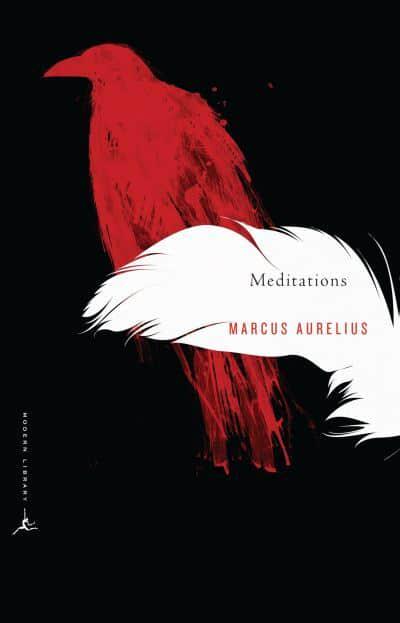
Meditations
A New Translation by Gregory Hays
Marcus Aurelius
Meditations by Marcus Aurelius is about converting knowledge to action. The Roman Emperor keeps reminding himself of the same few truths, and thus, strengthens his soul against the challenges of everyday life to respond in the best manner possible. To learn more, check my wisdom article "Meditations: The Wise Emperor and His Inner Fortress".
Three notes from the book:
1- You could be good today. But instead, you choose tomorrow.
2- It never ceases to amaze me: we all love ourselves more than other people, but care more about their opinion than our own.
3- External things are not the problem. It’s your assessment of them.
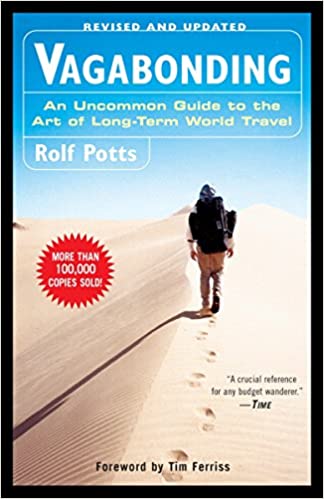
Vagabonding
An Uncommon Guide to the Art of Long-Term World Travel
Rolf Potts
Once my mum asked me: what do you want to do in life? I replied instantly: vagabonding. Traveling is one of my biggest joys in life. I like to travel without rush, to get lost, to discover new things about the world and myself, and to come back home slightly different than before traveling. You'll find in this book plenty of resources for new and experimented travelers but also, a different way to look at life.
Three notes from the book:
1- The more we associate experience with cash value, the more we think that money is what we need to live. And the more we associate money with life, the more we convince ourselves that we’re too poor to buy our freedom.
2- Vagabonding is about gaining the courage to loosen your grip on the so-called certainties of this world. Vagabonding is about refusing to exile travel to some other, seemingly more appropriate, time of your life. Vagabonding is about taking control of your circumstances instead of passively waiting for them to decide your fate.
3- A vacation, after all, merely rewards work. Vagabonding justifies it.
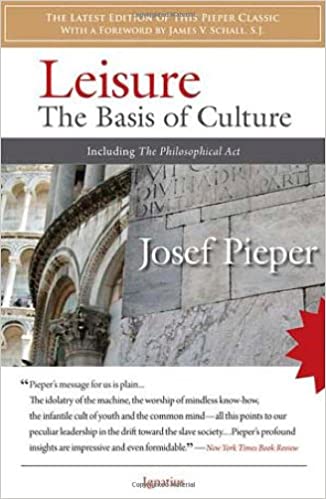
Leisure
The Basis of Culture
Josef Pieper
This book inspired me to write my article "What We Really Miss Out Living a Total Work Life". It's an invitation to give leisure its due place in our lives and to not let work take over our entire existence. Without leisure, we can neither know ourselves nor apprehend the spiritual realm.
Three notes from the book:
1- Leisure is a mental and spiritual attitude--it is not simply the result of external factors, it is not the inevitable result of spare time, a holiday, a weekend or a vacation. It is, in the first place, an attitude of mind, a condition of the soul.
2- The pause is made for the sake of work and in order to work, and a man is not only refreshed from work but for work. Leisure is an altogether different matter.
3- There is in fact no room in the world of "total labor" either for divine worship, or for a feast: because the "worker's" world, the world of "labor" rests solely upon the principle of rational utilization.
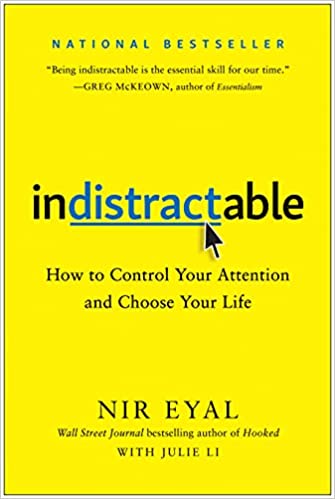
Indistractable
How to Control Your Attention and Choose Your Life
Nir Eyal
This book goes into the psychology of distractions and gives practical solutions to overcome them. Nowadays, being indistractable is a superpower. If you want to achieve your goals and get the most out of your time, this book can help have back your focus.
Three notes from the book:
1- Being indistractable means striving to do what you say you will do.
2- All motivation is a desire to escape discomfort. If a behavior was previously effective at providing relief, we're likely to continue using it as a tool to escape discomfort.
3- You can't call something a distraction unless you know what it's distracting you from.
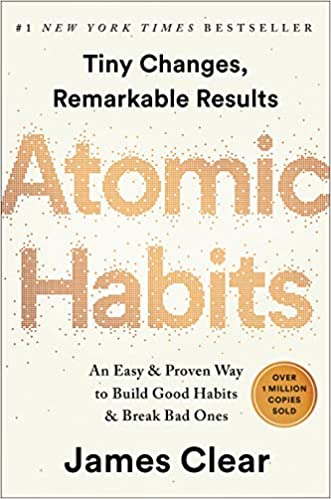
Atomic Habits
An Easy & Proven Way to Build Good Habits & Break Bad Ones
James Clear
Learning about habits improved my life dramatically. Once you understand how habits work, you can break down any long-term goal into tiny daily habits. Whatever you want to achieve, it becomes easier by understanding the psychology behind habits.
Three notes from the book:
1- Habits are the compound interest of self-improvement. The same way that money multiplies through compound interest, the effects of your habits multiply as you repeat them.
2- The purpose of setting goals is to win the game. The purpose of building systems is to continue playing the game.
3- The most practical way to change who you are is to change what you do.
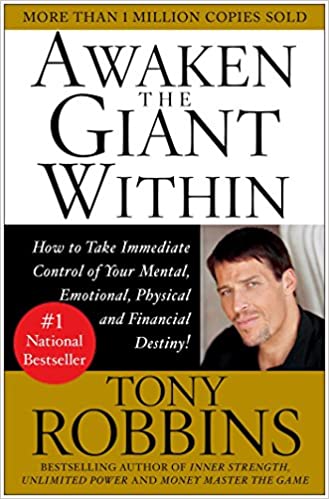
Awaken the Giant Within
How to Take Immediate Control of Your Mental, Emotional, Physical and Financial Destiny!
Tony Robbins
Emotional mastery is the part of the book that impacted me the most. After reading this book, I started paying more attention to what my emotions try to communicate. Instead of ignoring them, my emotions became an extremely helpful source of information.
Three notes from the book:
1- Remember: Succes truly is the result of good judgment. Good judgment is the result of experience, and experience is often the result of bad judgment.
2- It's not the events of our lives that shape us, but our beliefs as to what those events mean.
3- So why would someone not change when they feel and know that they should? They associate more pain to making the change than to not changing.
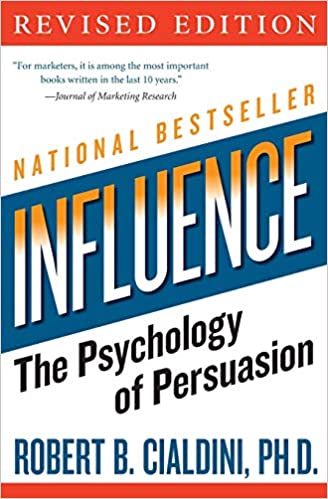
Influence
The Psychology of Persuasion
Robert B. Cialdini
The first time I read this book, I found it dangerous. The principles of this book can be used both ethically and unethically. Once you learn them, you’ll start seeing them everywhere, especially in marketing. So it’s better to know about them so that you can defend yourself from dishonest influence attempts.
Three notes from the book:
1- A well-known principle of human behavior says that when we ask someone to do us a favor we will be more successful if we provide a reason. People simply like to have a reason for what they do.
2- The tactic of starting with a little request in order to gain eventual compliance with related larger requests has a name: the foot-in-the-door technique.
3- The principle of social proof states that one means we use to determine what is correct is to find out what other people think is correct.
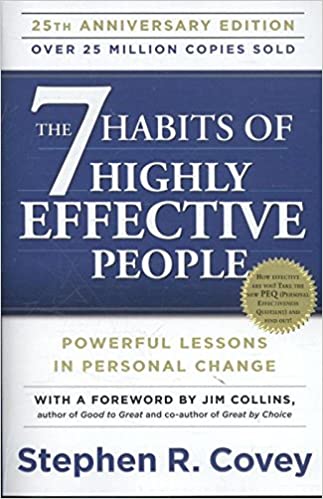
The 7 Habits of Highly Effective People
Powerful Lessons in Personal Change
Stephen R. Covey
This is one of the books I gifted the most to family and friends. I haven’t figured out yet what’s so unique about this book. Maybe it’s related to the gentle manner it gets under our defenses making personal change easier.
Three notes from the book:
1- Make small commitments and keep them. Be a light, not a judge. Be a model, not a critic. Be part of the solution, not part of the problem.
2- “Begin with the end in mind” is based on the principle that all things are created twice. There’s a mental or first creation, and a physical or second creation, to all things.
3- We began to realize that if we wanted to change the situation, we first had to change ourselves. And to change ourselves effectively, we first had to change our perceptions.
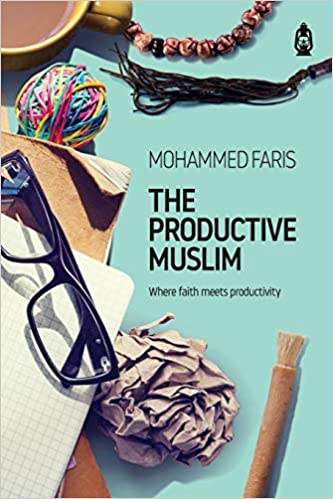
The Productive Muslim
Where Faith Meets Productivity
Mohammed Faris
I’ve never heard of Muslims reconciling faith and productivity before this book. I was so excited that I sent a message to the author. Now you have in one book the science of productivity combined with the spiritual dimension of Islam.
Three notes from the book:
1- Productivity= Focus x Energy x Time (towards maximizing reward in the Hereafter)
2- Barakah is the foundation of your spiritual productivity. It may be hard to measure, but it is real.
3- You CANNOT manage time! Why? Because one cannot manage what they can’t control.









